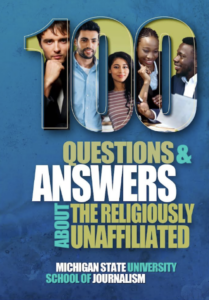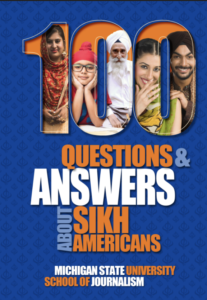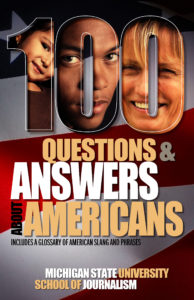Twice this week, President Donald Trump said American Jews who vote for Democrats are disloyal to Jewish people and to Israel.
Jewish people protested.
The CEO of the Anti-Defamation League, Jonathan Greenblatt, was one of many to object to what has long been used as a stereotype about Jews.
Greenblatt wrote that, for centuries, detractors have accused Jews of being disloyal or having dual loyalties to Israel and their own countries. Trump’s remarks struck two blind spots about Jews.
This is how “100 Questions and Answers About American Jews,” available from Amazon or the Front Edge Publishing bookstore, addresses the loyalty trope:
Are many American Jews also citizens of Israel?
No. One way to undermine people is to question their loyalty. This is behind statements that some Jews are citizens of both the United States and Israel. According to Pew Research almost 90 percent of American Jews surveyed were born in the United States. Others became U.S. citizens. Very few have dual citizenship, and the United States recognizes such arrangements with many countries.
Trump raised a second stereotype and that is that American Jews vote together. They do not. Although they tend to favor Democrats, Jews support both major parties in the U.S. This is what the guide says about that:
Which major political party do Jewish voters support?
In 2014, about 61 percent of people who identified as Jews also identified as Democrats or leaned that way. About 29 percent identified as or leaned toward being Republican. The study, by Gallup, showed that the Democratic preference had declined from 71 percent in 2008. The Democratic preference was higher among women, non-religious Jews and Jews with higher educations.
The American Jews guide was the first Bias Buster to address myths and stereotypes directly in their own section. It was a step forward for us because we had always been cautious about giving currency or credibility to biases by repeating them. In this guide, we felt the confidence to debunk stereotypes in a way that did not bolster them.




















